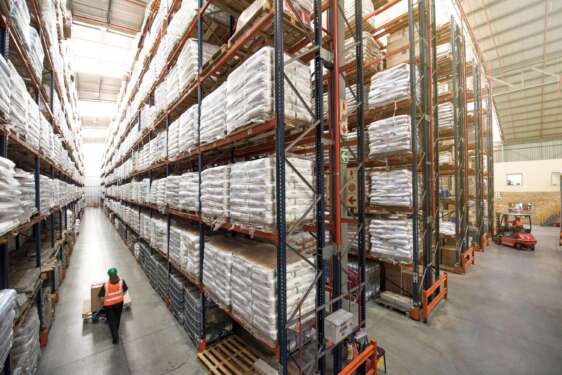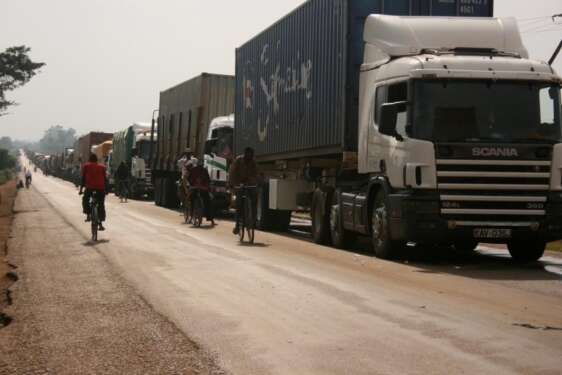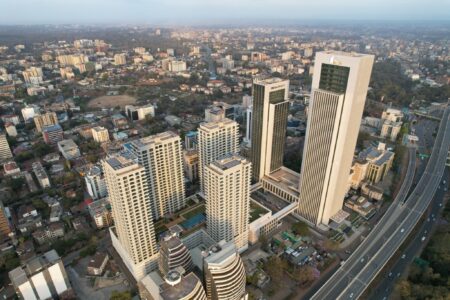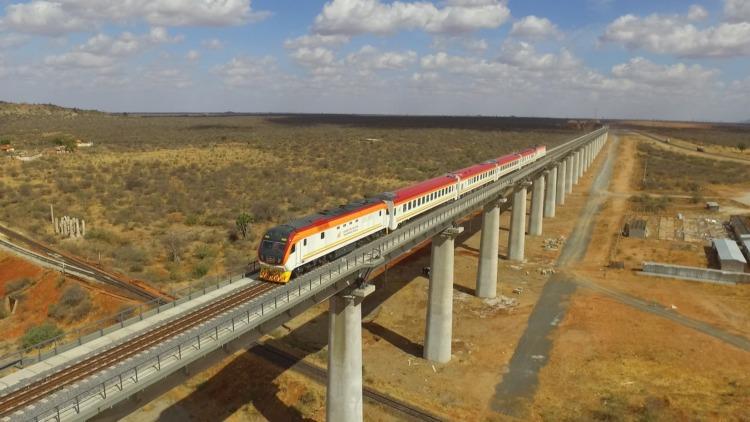Moving goods around Africa has been a huge challenge and only a few companies have managed the onerous task of delivering goods around the 30.37 million km² landmass.
The African continent’s supply chain is largely broken and local business owners to multinationals know this. Many African countries have severally ranked low on indicators such as cross-border clearance processes, quality of trade, infrastructure, inconsistent tax regimes, and consignments’ track and trace mechanisms on the World Bank’s Logistics Performance Index.
This reality means that the sector lags behind making it hard for businesses to grow and even if they grow, the pace is far slower than on other continents.
Read: TMEA Launches a Fund Worth $7.6 Million To Support Logistics Businesses in East Africa
This offers an opportunity for investors in the logistics sector as the continent is without any doubt offering a huge growth chance since Africa’s middle class is expanding which is growing the consumer base and spending power. For Africa, there has never been a better time to invest in logistics as it is now, especially with the operationalisation of the Africa Continental Free Trade Area (AfCFTA).
The AfCFTA confronts the logistical challenges by creating a single market—the world’s largest—for goods and services targeted at the 1.3 billion people in Africa. Indeed, the AfCFTA is timely and its success will determine how the growing population will be served.
By unlocking intra-regional trade, half the implementation of the AfCFTA will have been achieved since by countries trading with themselves, growth is inevitable. As has been, low levels of intra-regional trade have limited trade diversification with far-reaching implications. By increasing trade diversification, many more small and medium enterprises which would have otherwise been unable to participate in international trade will have a platform through the AfCFTA.
However, a smooth logistics supply chain remains a key hurdle that needs to be addressed if the continent is to reap the benefits envisioned in the free area trade agreement.
Several SMEs and small companies can benefit immensely from an investment in logistics which streamlines the process.
Africa is underserved by logistics firms and by just building capacity, the business is an enormous opportunity since any investment in the sector will only absorb the natural growth that already exists.
The Covid-19 pandemic’s effect on African economies is enormous leading to loss of jobs and billions of dollars. The pandemic however showed that there is an opportunity in establishing robust supply and value chains for Africa and diversifying the continent’s productive capacity to reduce over–reliance on the export of primary commodities.
A common agenda has been that Africa must increase its resilience against future pandemics by market integration, accelerating industrial development and enhancing competitiveness.
The bright side of the pandemic is that it magnified the urgent need to speedily accelerate economic integration on the continent. This will be possible with the investments in the logistics supply and value chain.
Companies like DHL have been operating in Africa for decades. DHL has a presence in every country in Africa and has strategically located its facilities for optimal services adapting to each country’s landscape. An eye view shows that the company’s approach is a supply chain that is multi-country with multiple divisions and end-to-end.
Read: Regional companies to benefit from more warehouse space
To tap into the logistics sector on the continent, another German company – Hapag-Lloyd – is expanding in Africa with the latest addition being Kenya. The company already has offices in South Africa, Egypt, Ghana and Nigeria and the Kenya office will be managed from the port city of Mombasa with an office in Nairobi.

While using the port of Mombasa as the gateway into the larger East African region, the shipping company is offering two different services while eying robust growth on the continent. The two services are the China Kenya Express Service (CKX) which connects Kenya with some of the most important ports in Asia, such as Singapore and Shanghai and the East Africa Service (EAS2) connecting the East African nation with the west coast of India and Jebel Ali in Dubai.
The strategic investment by Hapag-Lloyd also targets the landlocked East African countries including Uganda, Rwanda, Burundi and South Sudan. The company has regular inland connections to and from Mombasa.
Another strategy that the company is employing as part of its growth is developing inland connections to Somalia, Southern Ethiopia and Northern Tanzania.
Kenya is the regional and continental hub for trade and relies on strong and efficient logistics service providers.
Warehousing is another aspect of the logistics value chain which investors need to look at to make it easier to do business on the continent. In Kenya, for instance, the warehousing shortage is estimated at 16.9 million square feet.
To address this, Africa Logistics Properties is investing in grade–A warehousing which is topping all other real estate segments.
The warehouse which was 75 per cent at launch is 49,000 square metres – a tiny fraction of what is needed.
Demand for grade-A warehousing far outpaces supply in Kenya where finding suitable facilities is impossible going by a 2018 report by Tilisi Development which is a key player in the warehousing sector.
With an increasing demand for warehousing in Kenya and the entire continent, investors should look at ensuring that they address the current gaps in the logistics sector. Warehousing is an opportunity that cannot be overlooked or wished away.
Economic growth in Africa remains high especially in sub-Saharan Africa (SSA) which has some of the fastest-growing economies in the world. However, lack of infrastructure continues to constrain trade expansion both within the region and externally.
By closing the infrastructure quantity and quality gap relative to the best performers in the world, the SSA region could increase growth in its GDP growth per capita by 2.6 per cent per year. The potential growth lies in closing the gap in the transport sector.
Continent-wide, investment in transport infrastructure has increased with major continental initiatives such as the Programme for Infrastructure Development in Africa (PIDA) mobilizing resources to build modern infrastructure which could transform Africa.
Governments in the SSA region are paving the way for public-private partnerships (PPPs) to fund projects in the pipeline. For success in the logistics sector, investors should ensure that the supply chain is optimised for efficiency.
The value chain should include every player from the local producer to easily accessible pick–up points for the end–user.











